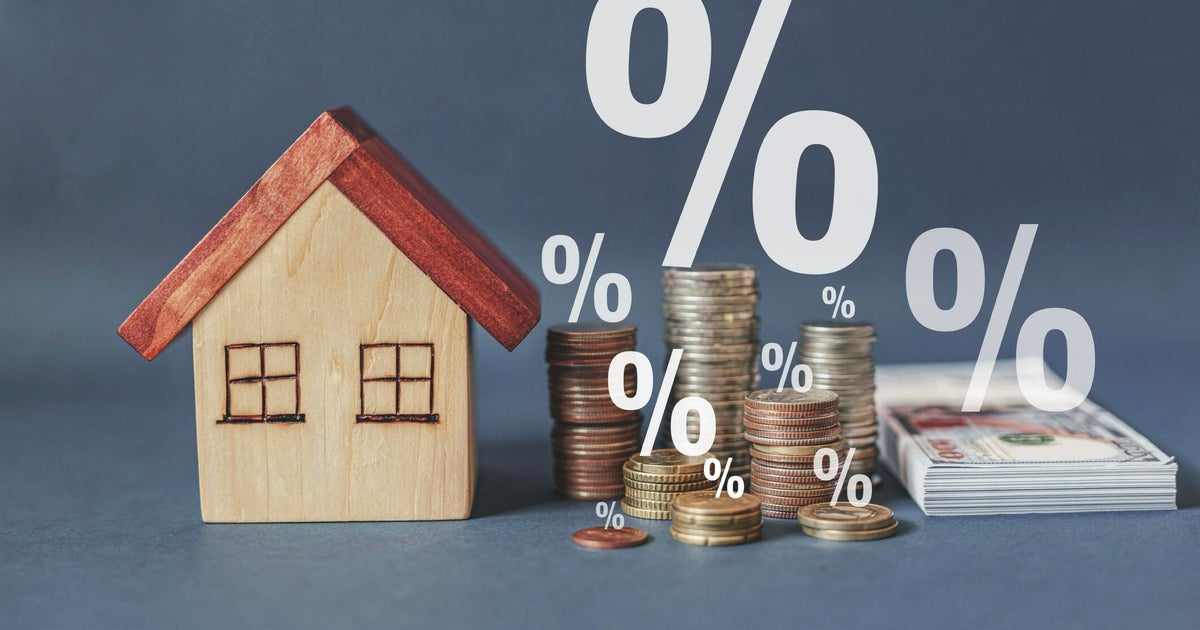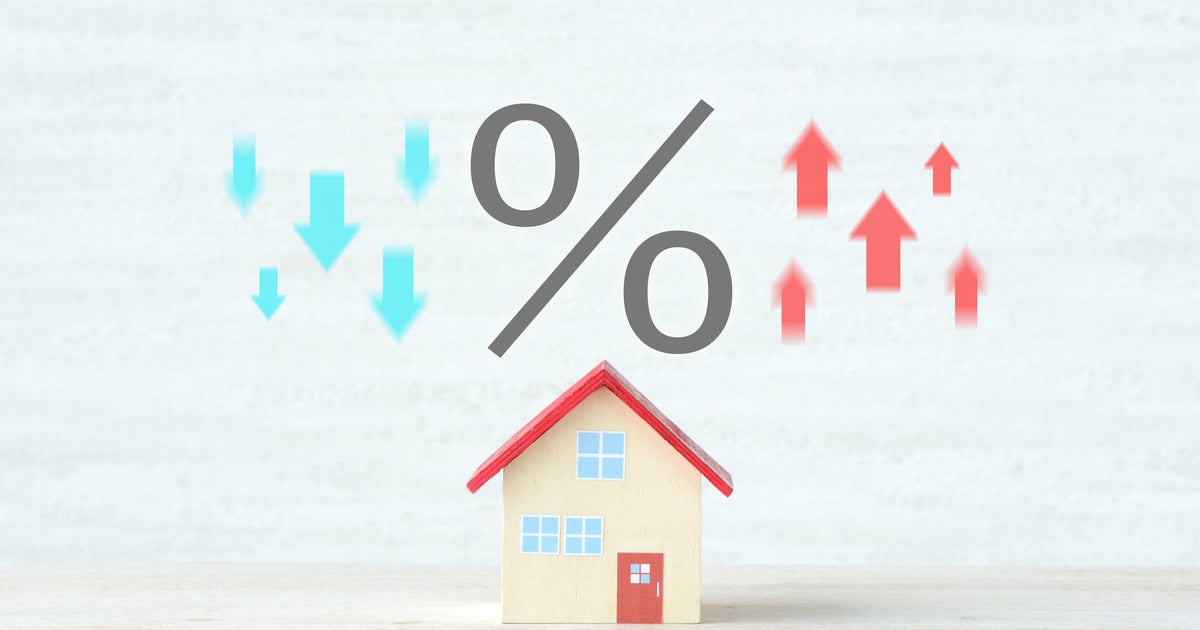3 mortgage moves to make before the July Fed meeting
While inflation has cooled in the past few months, at 3.0%, the current inflation rate remains above the Federal Reserve's target rate of 2%. As a result, the Fed has kept its benchmark rate elevated. And while mortgage rates have also fallen slightly in the past few months, today's average 30-year mortgage rate is 6.86% (as of July 22, 2024) — a rate that remains significantly higher than the sub-3% mortgage rates many buyers locked in during the pandemic.
Because mortgage rates remain relatively high, some would-be homebuyers have been waiting on the sidelines to see if rates will fall and mortgages will become less expensive. If inflation continues to trend downward, this could become a reality, as the Fed is expected to cut its benchmark rate at some point in 2024. In fact, with inflation continuing to decline, there's a small chance that the Fed could cut rates at its July meeting, though the expectation is that any Fed rate cut that happens will occur later this year.
So, if you plan on buying a home after the Fed meeting, which is slated to be held from July 30 to 31, it makes sense to start preparing now.
Start comparing the best mortgage loan rates available to you now.
3 mortgage moves to make before the July Fed meeting
If you're planning to buy a home soon — or are a homeowner looking to refinance your current mortgage loan — here are some moves experts say you may want to make before the upcoming Fed meeting.
Start shopping around
Mortgage rates and fees vary by lender. As a result, it's crucial to shop around for a mortgage to ensure you get the best rate for your financial circumstances.
Melissa Cohn, regional vice president at William Raveis Mortgage, recommends shopping the market for rates now and then [meaning after the July Fed meeting]. When you're ready to formally apply for a mortgage, Cohn says to find out the new mortgage rates being offered by the banks with the best rates from the initial inquiry.
John Aguirre, mortgage loan originator at Loantown, recommends asking this question while shopping around: What is the rate, and what are all the bank fees associated with it?
You may also want to read online reviews to see what other people have said about their experience with the lender, Aguirre says. If a lender has overwhelmingly bad reviews, it could be a sign to steer clear of them.
"I've seen people trapped in dreadful refinance applications with banks that never came to fruition. By the time they moved to a new bank, they were stuck with a higher rate," says Aguire.
It's also important to pay attention to how responsive a loan officer is, according to Aguirre.
"If your loan officer is unresponsive to rate quote requests, imagine how bad they'll be if you actually take out a loan with them," Aguirre says.
Learn more about today's top mortgage loan options online now.
Work on improving your credit score
Strengthening your credit file before applying could help you find a cheaper mortgage in today's high-rate environment.
Aguire says consumers should review their credit scores to ensure they have the strongest credit possible. That way, they're able to take advantage of the best refinance [or purchase] rates.
Some steps you can take to boost your credit score include paying down debt and reviewing your credit reports for errors. In addition, try not to open new credit accounts a few months prior to applying for a mortgage, as doing so can lead to hard inquiries on your credit reports, which can lower your score.
Determine which mortgage product you plan to use
Another move you can make in advance of the Fed meeting is to learn how different types of mortgages work. That way, you can select the option that best aligns with your budget and goals.
For example, two common options are fixed-rate mortgages and adjustable-rate mortgages (ARMs). A fixed-rate mortgage has a rate that remains fixed through the life of the loan, which protects you against increased costs due to future rate increases. Meanwhile, an ARM has a rate that remains fixed for a certain period of time and then fluctuates based on the overall rate environment, which can be beneficial if rates fall.
"We believe the benefits of a fixed-rate mortgage outweigh the advantages of adjustable-rate options, as they provide more stability and predictability for consumers," says Jason Obradovich, a chief investment officer at mortgage lender New American Funding.
Cohn says whether an ARM or fixed-rate mortgage is best depends on how long you plan to stay in your new home.
"With the expectation that rates will decline over the next two years, many buyers are looking at the lower rates that adjustable options offer. If you expect to only live in the new home for five to seven years, choosing an ARM might make sense," says Cohn.
But if you prefer stability and security, a 30-year fixed loan is the optimal choice, Cohn says.
Should you lock in a mortgage rate before the July Fed meeting?
Whether or not it makes sense to lock in a mortgage rate before the upcoming Fed meeting depends heavily on your financial situation. If you can comfortably afford a mortgage at today's rates, it could be a wise move to lock in a rate now rather than waiting for mortgage rates to fall. After all, locking in a rate on a fixed-rate mortgage loan now means you won't be impacted if mortgage rates increase.
Some experts believe mortgage rates could fall 0.25 to 0.75 % when and if the Fed cuts rates for the first time in 2024. In fact, some experts believe the reason why mortgage rates have been failing recently is because the market is anticipating a rate cut.
"Over the past couple of weeks, we have seen interest rates, including mortgage rates, drop as the market anticipates that the Fed will move in September and possibly once or twice more later this year," says Obradovich.
"We expect interest rates will continue to fall throughout 2024, as inflation appears to be aligning more closely with the Fed's target, and this trend is expected to continue," Obradovich says.
The bottom line
It's impossible to predict exactly what will happen to mortgage rates after the July Fed meeting. As a result, Aguirre recommends that homebuyers avoid trying to time the market. Rather, you should make sure the purchase accomplishes the goal you want, Aguirre says, and if it does, it makes sense to act on it before things move. And, to better prepare for purchasing a home, you should take steps to prepare, like shopping around and improving your credit, regardless of what the Fed does.
"The decision to buy a new home shouldn't be tied to the Fed," Cohn says. If you are considering a purchase now, Cohn recommends doing it [as long as it fits your budget]. That's because she believes if mortgage rates continue to go down, home prices will rise. And even if rates fall after you purchase a home, Cohn says you can always refinance your mortgage later.




